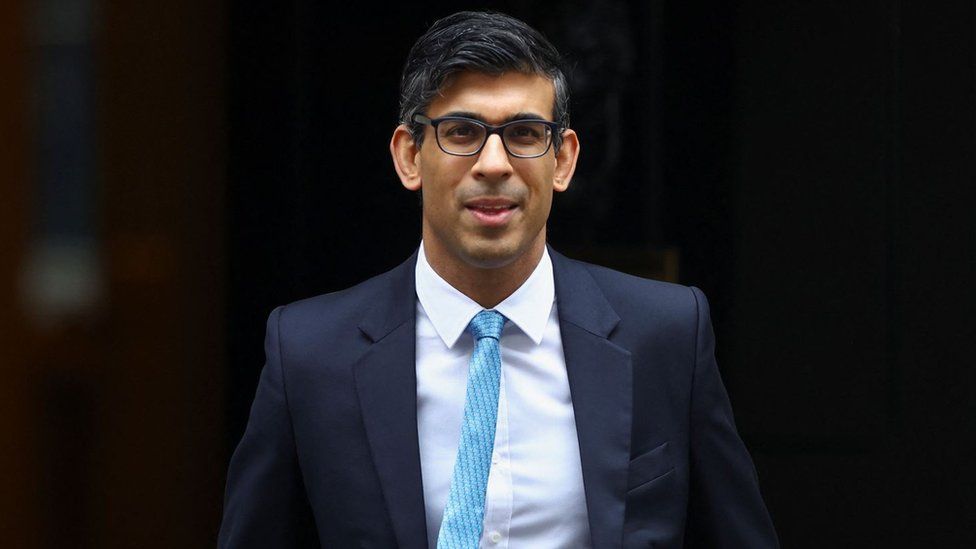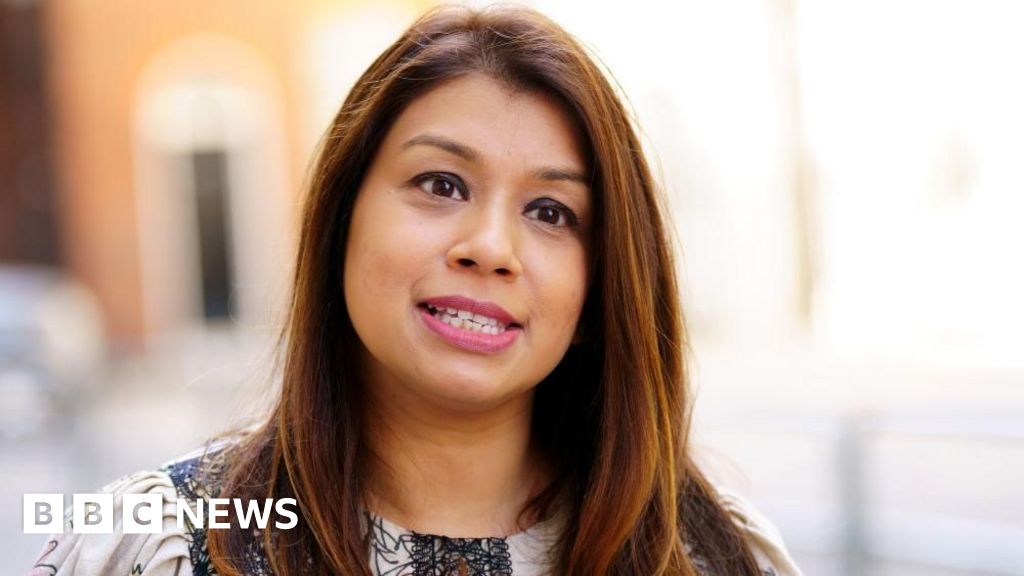ARTICLE AD BOX
 Image source, Reuters
Image source, Reuters
By John Campbell
BBC News NI economics and business editor
Rishi Sunak has held a video call with Northern Ireland business leaders as talks on the protocol continue.
The call lasted about half an hour and focused on the trade impacts of the protocol.
The prime minister was described as being across the "granular detail" of the issues that matter to business.
Mr Sunak made it clear a deal would provide "certainty, stability and clarity" for businesses, a Downing Street statement said.
BBC News NI understands that during Wednesday's call with businesses, Mr Sunak was told any new deal needed to balance the free flow of goods from Great Britain with the single market access afforded to Northern Ireland producers by the protocol.
The Northern Ireland Protocol aims to ensure free movement of goods across the Irish land border by conducting checks between Northern Ireland and Great Britain instead.
Unionist parties oppose the current rules and argue that placing an effective border across the Irish Sea undermines Northern Ireland's place within the UK.
Negotiations to resolve issues with the treaty have been going on for more than a year.
'Reasons to be hopeful'
Roger Pollen, from the Federation of Small Businesses (FSB), who was on the call, said there was no sense of when a deal might be concluded, but described the mood as "encouraging".
"It was pragmatic, it was useful," he told BBC Radio Ulster's Evening Extra programme.
"I wouldn't say I came away with any sense of what the timescale is on an outcome to it, but it was encouraging that this level of intensity is being focused on resolving the problems so many people have highlighted."
He added: "There's reasons to be hopeful, but whether there's reasons to be hopeful quickly, that's another question."
Stephen Kelly, chief executive of Manufacturing NI, said that, while details of a deal were not discussed, Mr Sunak was "not only fully engaged but had an intimate understanding of the issues" and was "committed to finding agreement with the EU".
Nichola Mallon, from Logistics UK, said the prime minster was pressed on the need for solutions that "protect Northern Ireland consumers and work for all sectors".
She said: "It is the logistics industry that ensures goods can be moved across sectors, something that was very much recognised by the prime minister, who referred to the logistics sector as the 'arteries' that keep goods flowing."
The video call came as the Mr Sunak faced questions at Westminster on what a potential deal with the EU could look like.
During Prime Ministers Questions on Wednesday, Labour leader Sir Keir Starmer challenged him over whether Northern Ireland would still be subject to some EU laws.
Mr Sunak said "intensive discussions" with the EU were ongoing.
The prime minister also refused to confirm whether, if a deal was secured, he would drop the Northern Ireland Protocol Bill.
The legislation, which is currently paused in Parliament, would give the government powers to unilaterally scrap parts of the treaty and has been a source of tension with the EU.
Following the video call, a Downing Street spokesperson said: "The prime minister outlined that any deal needed to safeguard Northern Ireland's place within the union, protect the Belfast (Good Friday) Agreement in all its dimensions, fix the practical problems on the ground and ensure the smooth flow of goods within the UK internal market.
"As intensive negotiations with the EU continue, the prime minister used the meeting to hear directly from the business community on the critical issues that must be fixed."
What is the Northern Ireland protocol?
The current rules, known as the Northern Ireland Protocol, were negotiated by Boris Johnson and came into force in 2021.
They introduced checks on goods sent from Great Britain to Northern Ireland, to get round the need for checks at the UK's border with the Republic of Ireland.
The rules have proved highly unpopular among unionists in Northern Ireland, and soured relations between the UK and EU.
In protest at the rules, the Democratic Unionist Party (DUP), Northern Ireland's second largest political party, boycotted power-sharing in Northern Ireland, meaning it has been without a functioning devolved government since February of last year.
A majority of members of the Stormont assembly are in favour of the protocol in some form remaining in place.
Sinn Féin, the Alliance Party and the SDLP (Social Democratic and Labour Party) have said improvements to the protocol are needed to ease its implementation.
British and European negotiators have been locked in talks for more than a year to secure changes that will satisfy business groups and politicians.

 1 year ago
22
1 year ago
22








 English (US) ·
English (US) ·